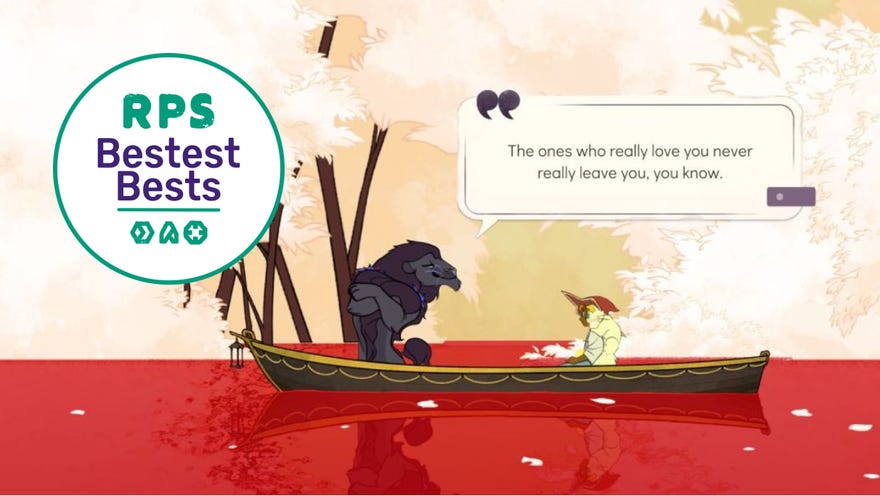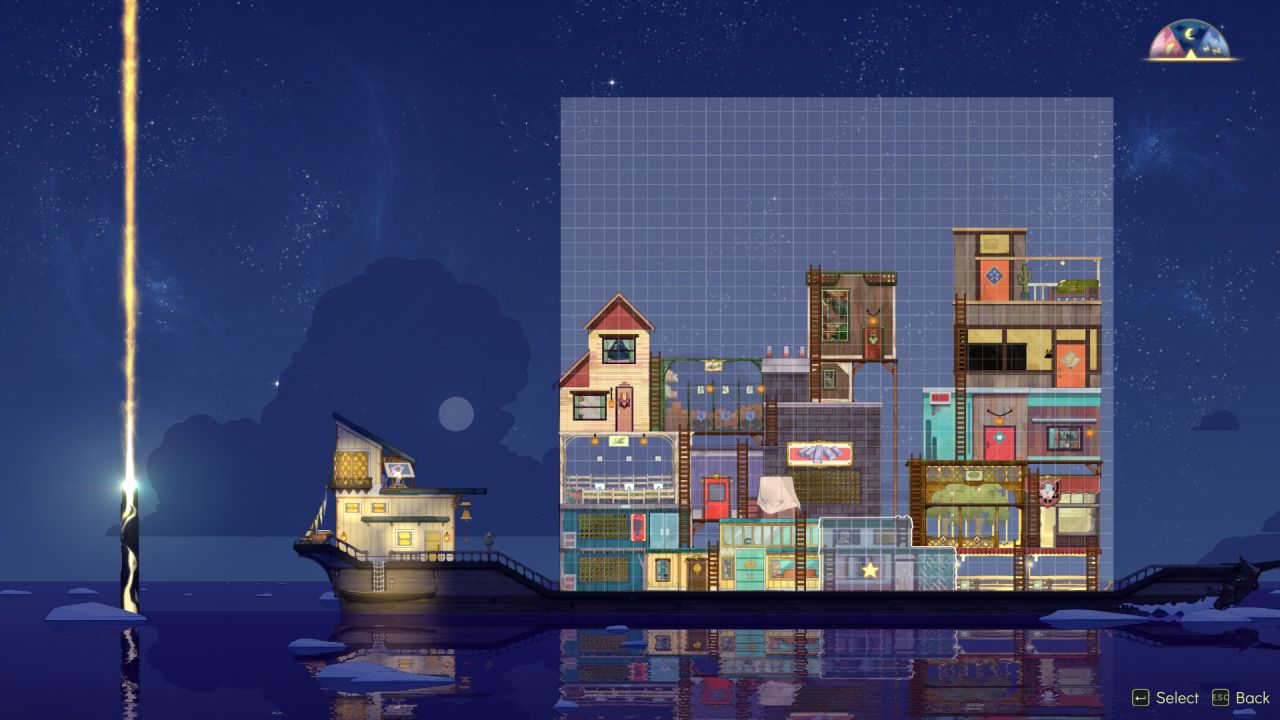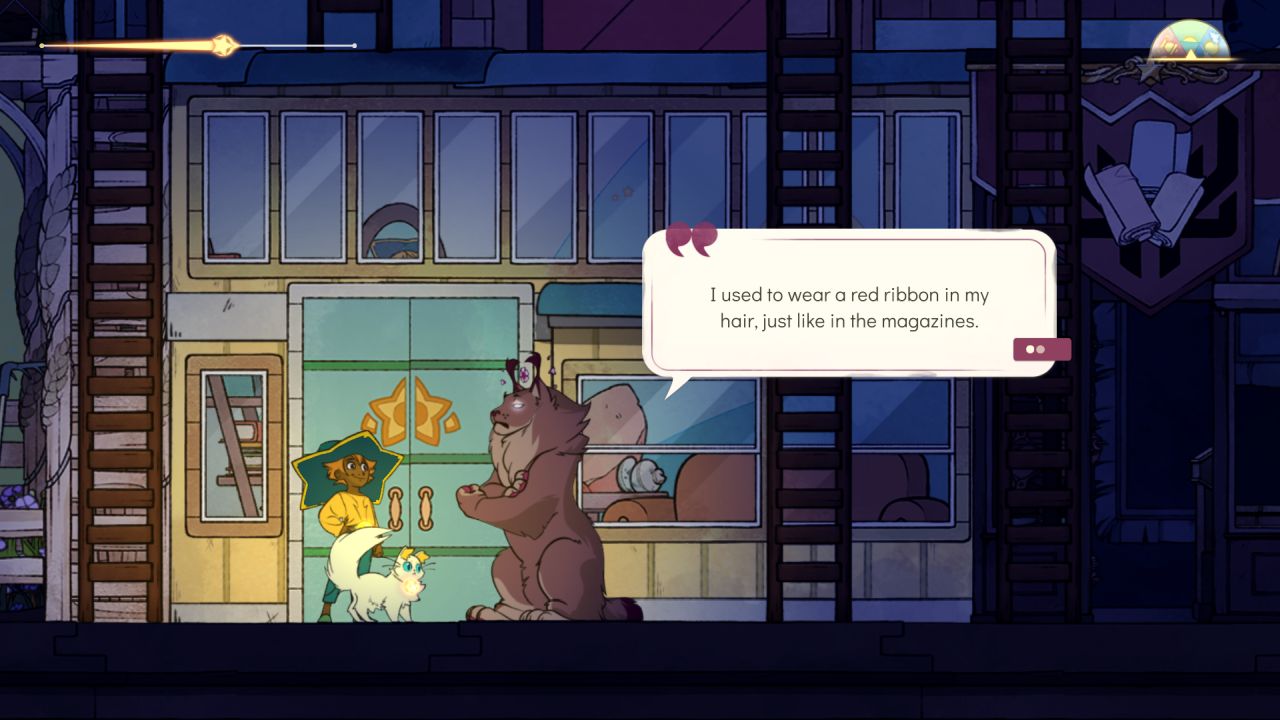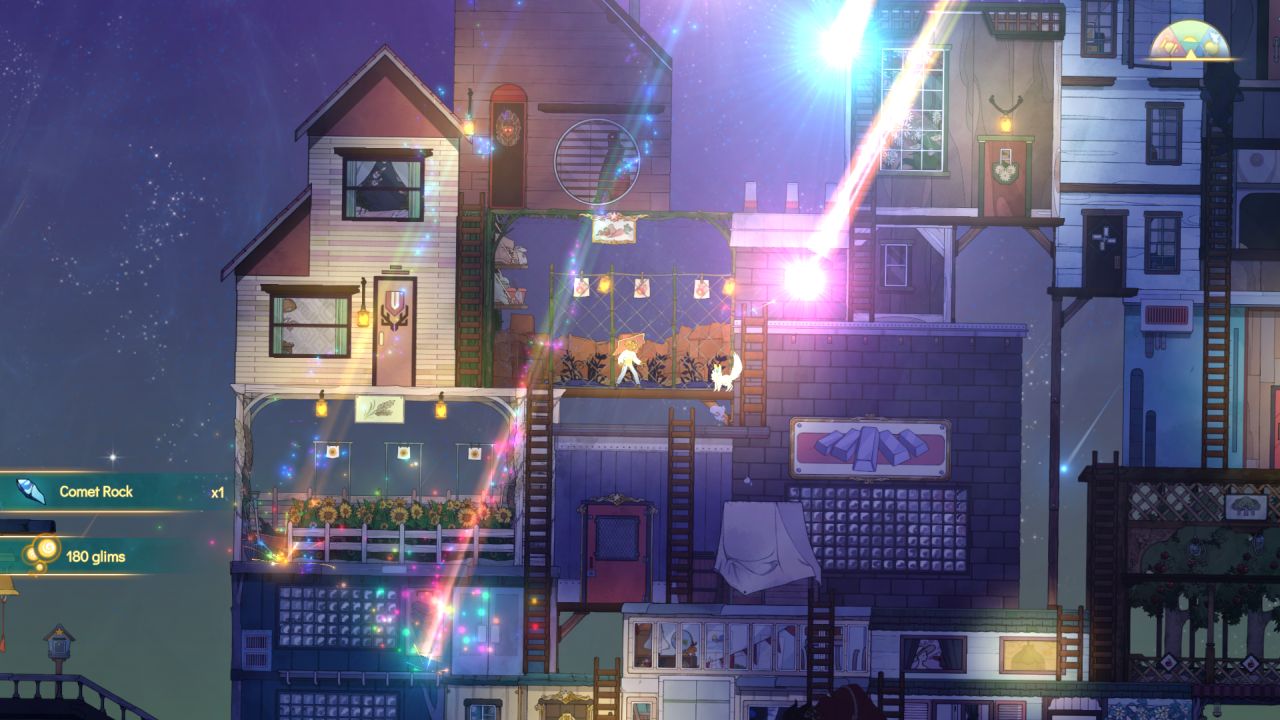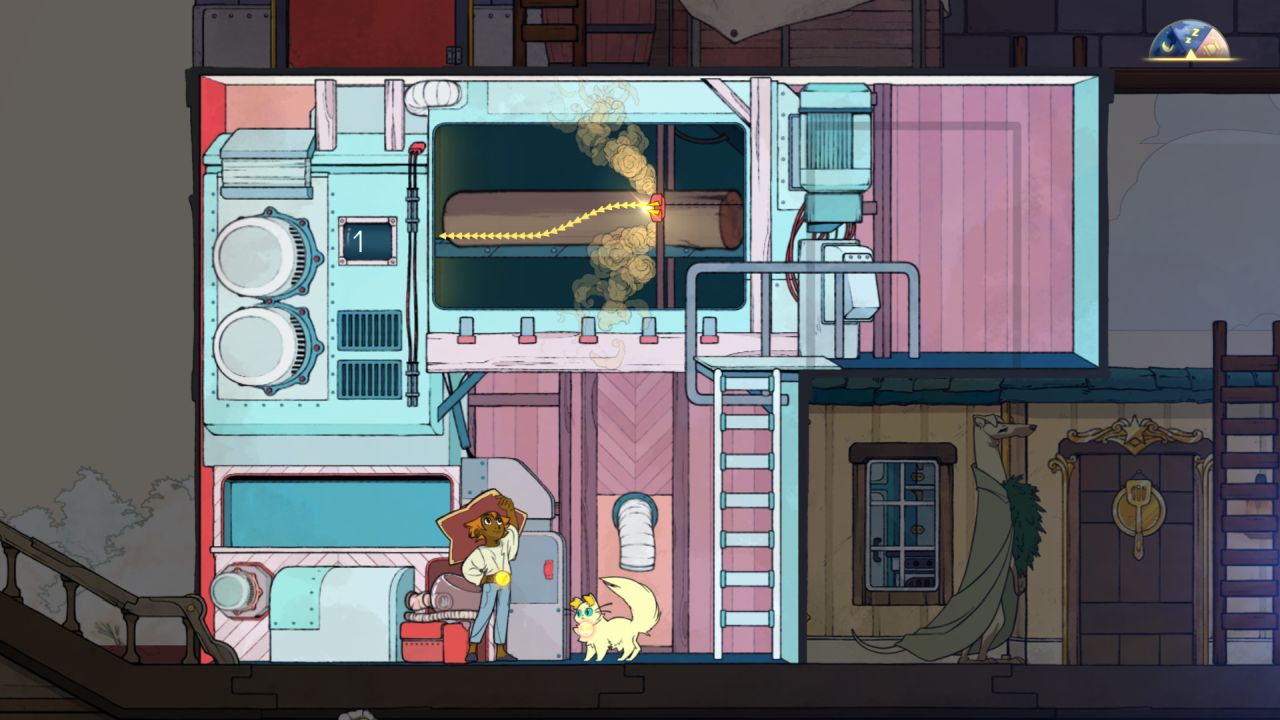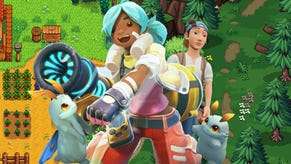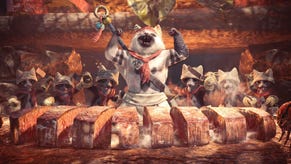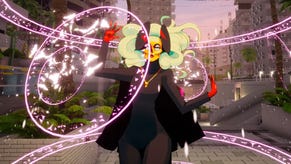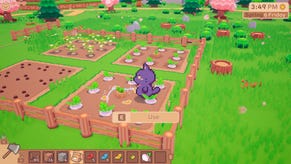Spiritfarer review
Death becomes her
Spiritfarer is about death. You play as Stella, whose job is to take dying spirits through the Everdoor to their final death, when they're ready. Except, I think it is actually about kindness. Helping a spirit become ready to go involves cooking for them, hugging them, and building them a home on your enormous houseboat. And for that you must care for sheep, play music to plants to help them grow, mine for coal and learn to smelt silver.
It is a cosy management game where you spend most of your time harvesting things to make other things. Like Stardew Valley, but where your thousand acts of labour are done entirely for, on the face of it, nothing. Or at least not for your own material gain. It's all given away. It is excellent.
When I previewed Spriritfarer I was told by Nicolas Guérin, the lead writer and creative director at developers Thunder Lotus Games, that every player has one spirit whose death really gets to them. He was wrong, because I had two. One got me because I was extra kind to them, and the other because I wasn't.
When a spirit joins your ship you build them somewhere to live, so you end up with a collection of little homes that stack on top of one another. In between them you put other buildings you need for the happy running of a community: gardens for growing veg, a sawmill and foundry for processing the raw materials you find out in the world, a loom for weaving. Every spirit teaches you how to use one or two of these, and once you've built them you can move everything around, stacking and switching things at your leisure with little clicky-brick noises.
Each spirit is an animal representing the person they truly are. Alice was a sweet, elderly hedgehog lady who liked old-fashioned food and apple trees, and asked to go somewhere exciting with me, and therefore reminded me of my own grandmother. Before she came aboard, I had organised my ship's layout as sensibly as possible, with few gaps. But then one of the other residents told me that Alice was having trouble getting up and down the ladders. So I rearranged my entire boat specifically around her, and because she liked the orchard I made sure it was right near her home.
Spiritfarer rewards you for paying attention and trying to be kind, you see, and it turned out that Alice got a permanent mood boost from being near the orchard. I made apple pies for her in the kitchen, via a process that required a lot of experimentation. Each spirit has a list of likes and dislikes, and some even have food allergies, and you can only find all of these things out through trial and error. Similarly, your recipe book is a blank slate, so you have to just try combining a root vegetable with some flour, let's say, and seeing what happens. It is both an intriguing and a satisfying sort of puzzle, trying to work out what things become what other things, ahead of time.
As you perform tasks for them, your motley crew will make further requests. They will share memories and go through trials, or may ask to be left alone. You can hug them all, and that cheers them up. The hugging is excellent, because everyone hugs you in a slightly different way, with an animation that fits who they are. Astrid, a lynx, always looks surprised for a second, before flopping her big paws down. The animation and art, in fact, are universally beautiful, and full of charming detail. Look at how a sheep reacts when you shear it, for example:
Although I said that all your work is carried out for nothing but kindness, making your denizens happy does reap some benefits. At certain mood levels, they'll give you valuables to sell, or extra raw materials they've gathered, which is useful given the amount of travelling you have to do to acquire them otherwise. The locations and islands you visit are scattered across a surprisingly wide map, split into different regions with different styles - misty pine forests, industrial cities, agrarian rice farms - and as spirits' requests become more complicated, you have to travel further afield for rarer resources.
While some things can be bought or harvested from towns, others are gathered through events where, perhaps, you must sail into the heart of a storm to catch lightning, leap around to catch the sparkling, rainbow explosions of meteors showering from the sky, or platform around the back of a dragon. Each of these is events, too, is linked to one of the spirits, so you're left with a lot of memories once they're gone.
I spent a lot of time slowly crisscrossing the map because I didn't discover the fast travel system until I was about 15 hours in. But I didn't particularly mind that. It's worth taking your time, and also worth stopping and talking to everyone. Because while Spiritfarer has a heart of gentle sadness, it's also very funny, especially in the incidental writing.
Even supporting characters (including a trio of gossiping giant turtle sisters, a shark who runs the ship upgrade store and loves puns, and a family of raccoons who run a shopping monopoly) get loving detail. One random NPC complained about the loose change in his pocket rubbing together, calling the coins "copper deviants", and made me howl with laughter.
The destinations themselves are fun, too, with lots of hidden chests and secrets, and weird side quests for the regular citizens involving things like smuggling a lot of lemons. Often this involves a fair amount of platforming, and to this end Stella can find shrines in the world where abilities can be unlocked such as glides, double jumps and ziplining.
It's probably the weakest part of Spiritfarer, as the jump feels a little sticky, and the zipline a bit finicky about when you can and can't hook on to it. But it doesn't feel trite, because it all helps you get where you need to go, or find the things you need, in order to help your friends. And it is, ultimately, as gentle as everything else. Though you have to make and mend things all the time, it doesn't feel like busywork because you don't need tools, so you never have to craft a new hammer or fill up a watering can. You carry everything you need with you in the form of a magical globe of light that becomes whatever you need it to be.
It contrasts well with the complexity of how many different types of fish and stone and cloth there are to play with, and the elegant controls deserve a mention here too. While it takes a little while, you can cycle through all the menus and inventories and quests using not even mouse and keyboard, but just a keyboard. It's possible, even preferable, to play Spiritfarer entirely with one hand in WASD position.
Ultimately, everything in Spiritfarer is like that. Measured, thought out, detailed, kind. It has intent, from top to bottom. Even the weather feels like it has intent, the cycle of the day and night, the routines you get into. They way your friends leave you, sometimes in ways that will surprise you. Spiritfarer will probably make you very very sad, but it even does that in a kind way. In a way that makes you think about who you have lost, but also what they left behind with you, and the ways you are still close to them.
When Alice was finally ready to leave, she wasn't able to walk far without my help. It made me very sad. And soon after she left, I picked up Giovanni. Giovanni was quite intense. A confident, strutting lothario of a lion. And for reasons that I won't spoil, I wasn't as nice to Giovanni. I didn't make a special effort to make his favourite food, or go out of my way to hug him. But when he left, he was so, so kind to me as he said goodbye. And that made me sad too.
